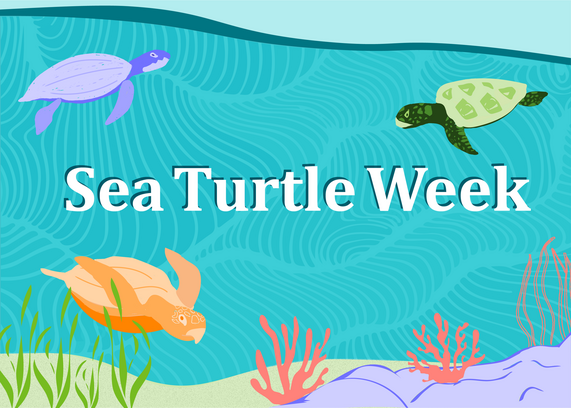 Sea Turtle Week is June 9–16! Swimming in Earth’s oceans for tens of millions of years, sea turtles lead incredible lives. They migrate across oceans and survive for many decades at sea. Take a dive into our sea turtle features and videos to learn how NOAA conserves and protects sea turtle populations and how you can help, too. 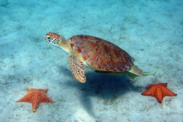 Read a message from Kim Damon-Randall, Director of NOAA Fisheries’ Office of Protected Resources, as she spotlights the vital role sea turtles play in supporting productive oceans and what you can do to help conserve them. |
|
|
Highlights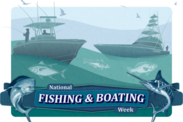 Marine recreational fishing is a cherished American pastime and draws millions of anglers to support our coastal communities. Celebrate our nation's love for fishing and boating with our collection of features from National Fishing and Boating Week. |
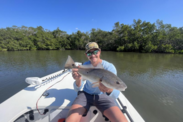 Each year, National Fishing and Boating Week reminds us of the powerful bond between people and the water. Here at NOAA, we’re inspired to celebrate this connection in 2025. From June 1–8, communities across the country gathered along our coasts to cast lines, launch boats, and share stories that span generations. |
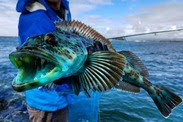 Want to show off your amazing catch, create a memory—or just update your profile picture? We’re sharing the best ways to capture your memorable fishing moments with just your smartphone. We spoke with Nick Haddad, Sustainable Fisheries Communications Manager for Return ‘Em Right (and photography enthusiast), to get some tips. |
|
|
National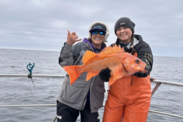 For decades, citizen scientists have collected information on water quality, marine mammal sightings, and fish size and health—all of which contribute to effective marine resource management. A new publication from NOAA Fisheries highlights the potential to expand the use of citizen science data in stock assessments and provides recommendations for the integration of this type of data in the future. |
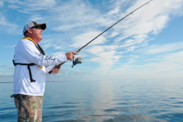 Experts at NOAA Fisheries, in consultation with states and regional partners, perform stock assessments using a wide range of available data. These assessments form the foundation upon which regional management decisions are based, including the setting of annual catch limits. They ensure that our shared fisheries resources remain productive, sustainable, and economically viable. |
|
|
Alaska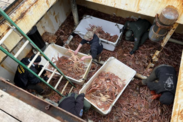 In early March 2024, the NOAA Office of Law Enforcement initiated an investigation into two Alaska crab catcher vessels. The investigation resulted in a Kodiak fisherman being sentenced to 1 year in prison and 2 years of supervised release for illegally trafficking diseased crab from Alaska to Washington. The sentence also includes a worldwide ban on any commercial fishing for the duration of the term of his supervised release. |
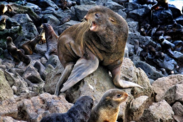 New research establishes the first known link between the neurotoxin saxitoxin, accumulated during harmful algal blooms, and deaths of northern fur seals in the southeast Bering Sea. The findings of this study deepen our understanding of the changing ecosystem and give us new insights about the growing risks of toxin exposure to marine wildlife and coastal communities that rely on the ocean for food. |
|
|
Pacific Islands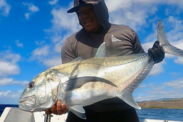 The Pacific Islands Fisheries Group’s Tag It project is harnessing the power of anglers across Hawai‘i. The fishermen-led program has tagged 20,000 fish throughout the Hawaiian archipelago and in the Pacific, including Guam and Saipan. Their efforts provide critical data to help fishermen, scientists, and resource managers better understand how fish populations are doing. |
|
|
Southeast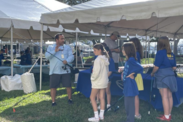 Getting students excited about science, marine life, conservation, and fishing is an annual event in St. Petersburg, Florida, home of the St. Petersburg Science Festival. The event brings the science and academic communities together to create a hands-on experience for students to be engaged, have fun, and consider a career in science. |
|
|
New England/Mid-Atlantic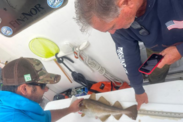 NOAA Fisheries recently teamed up with members of New England’s recreational for-hire fleet, the New England Aquarium, Pelagic Strategies, and the Atlantic States Marine Fisheries Commission to fill cod and winter flounder data gaps. Partnering to collect more complete, timely data improves the stock assessment process and the chances for overfished stocks to recover. |
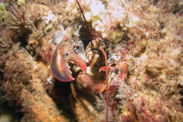 Conditions at the bottom of the ocean along much of the Northeast U.S. coast have been colder than normal in the first few months of 2025—and are expected to remain that way. This prediction, a product of NOAA’s Changing Ecosystems and Fisheries Initiative, is from the first experimental seasonal ocean outlook for the U.S. East Coast. It is a shift from previous patterns: From 2004 to 2013, sea surface temperatures in the Gulf of Maine warmed faster than anywhere else in the world. |
|
|
Upcoming DeadlinesJune 15: Priority applications due to participate in the Gulf of Maine Research Institute Marine Resource Education Program in the Southeast fishery region June 27: Applications due for U.S. Department of Agriculture’s Agricultural Marketing Service Local Agriculture Market Program July 1: Applications due for the Gulf Council’s Social Scientist position September 5: Proposals due for NOAA’s Cooperative Institute Fostering Aquaculture Research and Marketing September 10: (deadline extended) Applications due for the Department of Transportation Maritime Administration’s 2025 Port Infrastructure Development Program View more news and announcements |
|
Upcoming EventsJune 11–16: Pacific Fishery Management Council Meeting in Rohnert Park, CA June 20: Atlantic Shark Identification Workshop in Fort Lauderdale, FL June 24–25: Peer Review: 2025 June Management Track Assessments for Multiple Mid-Atlantic Stocks June 24–26: New England Fishery Management Council Meeting in Freeport, ME July 2: Safe Handling, Release, and Identification Workshop in Ocean City, MD July 10: Atlantic Shark Identification Workshop in Virginia Beach, VA August 7: Safe Handling, Release, and Identification Workshop in Vero, FL August 9: Woods Hole Science Stroll at NOAA Fisheries August 11–14: Mid-Atlantic Fishery Management Council Meeting in Annapolis, MD August 21: Atlantic Shark Identification Workshop in Mount Pleasant, SC September 4: Safe Handling, Release, and Identification Workshop in Kenner, LA View more events |
|
| |
|


No comments:
Post a Comment